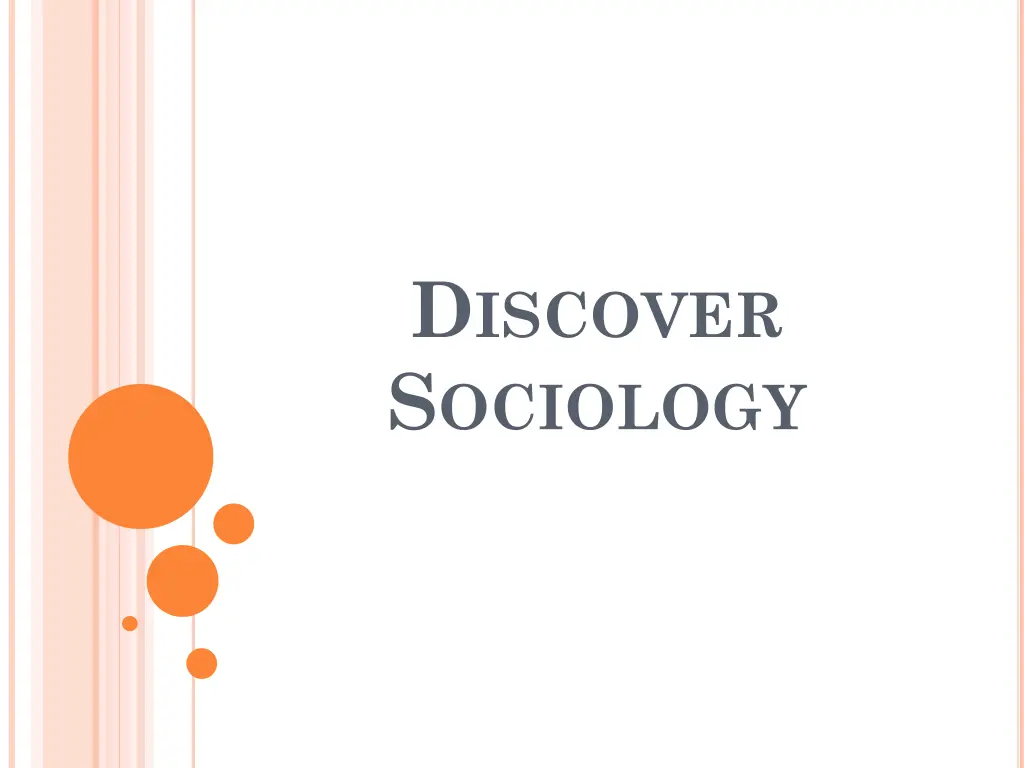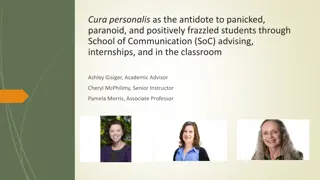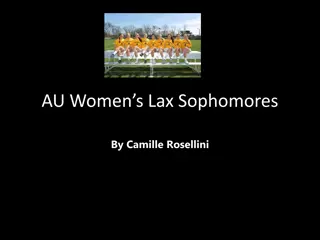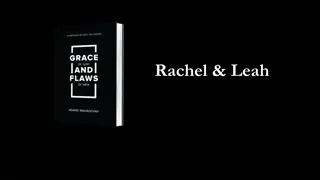
Explore the World of Sociology and Sociological Imagination
Delve into the systematic and scientific study of human society, behaviors, and interactions with sociology. Understand the importance of studying sociology, the sociological perspective, and the sociological imagination in grasping societal influences on individuals. Discover the concepts of agency and structure in sociology, linking personal choices with societal arrangements. Gain insights into the broader context of social conditions and the impact of social forces on individual lives.
Download Presentation

Please find below an Image/Link to download the presentation.
The content on the website is provided AS IS for your information and personal use only. It may not be sold, licensed, or shared on other websites without obtaining consent from the author. If you encounter any issues during the download, it is possible that the publisher has removed the file from their server.
You are allowed to download the files provided on this website for personal or commercial use, subject to the condition that they are used lawfully. All files are the property of their respective owners.
The content on the website is provided AS IS for your information and personal use only. It may not be sold, licensed, or shared on other websites without obtaining consent from the author.
E N D
Presentation Transcript
DISCOVER SOCIOLOGY
WHAT IS SOCIOLOGY? Systematic and scientific study of human society, human behavior, and interaction between groups and individuals Why study? Look for patterns and make generalizations Predict future behaviors Social Science vs. Natural Science
INTRODUCTION TO SOCIOLOGY Sociology: the scientific study of human social relationships, groups, and societies. Aims to understand human behavior, social relations, and social institutions on a larger scale Scientific approach Rigorous research methods Principle of social embeddedness 3 Cha mbli ss, Disc over Soci olog y 3e. SAG E Pub lishi
WHY STUDY SOCIOLOGY? A sociological perspective: highlights many ways people influence and are influenced by their social worlds. Enables us to see the world through a variety of lenses. Helps us to gain a better picture of the issues confronting us locally and globally. 4 Cha mbli ss, Disc over Soci olog y 3e. SAG E Pub lishi
THE SOCIOLOGICAL IMAGINATION The ability to grasp the relationship between individual lives and the larger social forces that shape them Relationship between private troubles and public issues Where biography and history intersect Example: An unhappy couple National divorce rates A person loses his or her job Unemployment trends 5 Cha mbli ss, Disc over Soci olog y 3e. SAG E Pub lishi
SOCIOLOGICAL IMAGINATION C. Wright Mills linking biography to history and how this influences our sense of self and behaviors Allows broader context for understanding people and situations Influence of society on individual and individual on society Agency: individual free will Structure: social arrangements that affect agency Focus on social conditions: personal troubles vs. public issues
AGENCYAND STRUCTURE Agency: the ability of individuals and groups to exercise free will and to make social change whether on a small or large scale Structure: patterned social arrangements that have an effect on agency Our choices are enabled or constrained by structure. Example: Going to College 7 Cha mbli ss, Disc over Soci olog y 3e. SAG E Pub lishi
CRITICAL THINKING The ability to evaluate claims about truth by using reason and evidence Recognizes poor arguments Rejects statements not supported by evidence Questions our assumptions 8 The six rules of critical thinking Cha mbli ss, Disc over Soci olog y 3e. SAG E Pub lishi
CRITICAL THINKING The ability to evaluate claims about the truth by using reason and evidence Six rules: Be willing to ask any question, no matter how difficult Think logically and be clear Back up your arguments with evidence Think about the assumptions and biases INCLUDING YOUR OWN that underlie all studies Avoid anecdotal evidence Be willing to admit when you are wrong or uncertain about your results 1. 2. 3. 4. 5. 6.
DEVELOPMENTOF SOCIOLOGICAL THINKING Rooted in four interrelated historical developments: Scientific revolution: belief in science and reason The Enlightenment: equality, liberty, and fundamental human rights The Industrial Revolution: shift from agriculture to manufacturing Urbanization: mass migration from rural farms to urban factories 10 Cha mbli ss, Disc over Soci olog y 3e. SAG E Pub lishi
THEORETICAL PERSPECTIVES Theory: abstract statements that explain and predict Logical, rigorous frameworks for the interpretation of social life that make particular assumptions and ask particular questions about the social world Levels of Sociology Video Clip Microsociology Macrosociology Three perspectives: Functionalism, Conflict Theory (Marxism), Symbolic Interactionism
THEORETICAL PERSPECTIVES Functionalism Macrolevel Society is a whole unit made up of interrelated parts Moral consensus: contributes to stability of whole Explains social organization and change in terms of the functions performed by different social structures, phenomena, and institutions Asks: What is the function of ______? If it exists and persists, it must serve a function. Change in one leads to change in all Example: Crime and Deviance Critiques Assumes all existing institutions/phenomena serves a function Poor explanation of existence of social inequality and effect on social relationships Accepts rather than questions status quo
FUNCTIONALIST THEORISTS mile Durkheim Function of deviance is to define what is normal, what is considered right and good Talcott Parsons Traditional, complementary, gender roles promote social stability Men socialized into instrumental roles: rational, work- oriented Women socialized into expressive roles: sensitive, nurturing, and emotional 13 Cha mbli ss, Disc over Soci olog y 3e. SAG E Pub lishi
FUNCTIONALIST THEORISTS Robert Merton Refined functionalist ideas Social institutions or phenomenon can be positive and/or dysfunctional Manifest function: obvious and intended functions of a given phenomenon or institution Latent function: functions that are not recognized or expected 14 Cha mbli ss, Disc over Soci olog y 3e. SAG E Pub lishi
FUNCTIONALIST THEORIES C. Wright Mills Sociological imagination Power elite: small group of wealthy businessmen, military leaders, and politicians make key decisions for the country in their own interests. 15 Cha mbli ss, Disc over Soci olog y 3e. SAG E Pub lishi
THEORETICAL PERSPECTIVES Conflict Theory Macrolevel Society is composed of groups that compete for resources Focus on dominance, competition, upheaval, and social change Explains social organization and change in terms of the conflict built into social relationships. Asks: Who benefits? Who loses? Each group in society (class, race, gender, etc.) will act in its own interests. (ex: crime and deviance) Critique Overlooks the forces of stability, equilibrium, and consensus in society.
CONFLICT THEORISTS Karl Marx: conflict between capitalist class and working class over wages and productivity Critical of ideology within society created false consciousness Theodor Adorno: control of culture serves to uphold class domination Feminism: focus shifts from social class to gender power Critical race theory: focus on conflict between racial groups 17 Cha mbli ss, Disc over Soci olog y 3e. SAG E Pub lishi
THEORETICAL PERSPECTIVES Symbolic Interactionism Microlevel Society is the sum of interactions of individuals and groups Use of symbols and gestures to define world and communicate Asks: How do we interact? How do we create and interpret symbols? Study face-to-face interaction and how meanings change Individual interpretation Society and behaviors can change by modifying definitions and interpretations People acquire a sense of who they are through interaction with others Example: Crime and deviance Critiques Considered unscientific and astructural Ignores macrosociology
PRINCIPLE THEMESOFSOCIOLOGY Power and Inequality Power: the ability to mobilize resources and achieve goals despite the resistance of others. Inequality: differences in wealth, power, political voice, educational opportunities, and other valued resources. Sociologists ask how the unequal distribution of social, economic, and political power and resources shape opportunities, obstacles, and relationships Who has power? Who doesn t? What are the negative effects of inequality? 19 Cha mbli ss, Disc over Soci olog y 3e. SAG E Pub lishi
PRINCIPLE THEMESOFSOCIOLOGY Globalization and Global Diversity Globalization: The process by which people across the planet are becoming increasingly interconnected economically, politically, culturally, and environmentally. Social diversity the social and cultural mix of different groups in society and the societal recognition of this difference as significant Ethnocentrism worldview judging other cultures by the standards of one s own culture Example: Local consumption, global production 20 Cha mbli ss, Disc over Soci olog y 3e. SAG E Pub lishi
PRINCIPLE THEMESOF SOCIOLOGY Technology and Digital Society Technology: the practical application of knowledge to transform natural resources for human use Information revolution Post-industrial economies based on the production of knowledge rather than the production of goods. Example: Twitter 21 Cha mbli ss, Disc over Soci olog y 3e. SAG E Pub lishi
ORIGINSOF SOCIOLOGY--ROOTS Developed in late 1700 s-early 1800 s Using science instead of religion to study the world Influenced by the Scientific Revolution, the Enlightenment, the Industrial Revolution, and Urbanization Auguste Comte (1798-1857) French philosopher Positivism: using scientific method to study social world Coined the term sociology
ORIGINSOF SOCIOLOGY--ROOTS Harriet Martineau (1802-1876) British Translated Comte s works Early Feminist thought social justice for women and other oppressed groups
ORIGINSOF SOCIOLOGY--ROOTS Herbert Spencer (1820-1903) British Social Darwinism: evolution of societies from lower to higher forms Survival of the Fittest Most fit adapt and survive, less fit die out Society as an organism
ORIGINSOF SOCIOLOGY--CLASSICAL Emile Durkheim (1858-1917) French Social facts external factors that influence human behavior Social integration: mechanical/organic solidarity Greatest work on Suicide Anomie: normlessness
ORIGINSOF SOCIOLOGY--CLASSICAL Karl Marx (1818-1883) German Social inequality developed from Capitalism Class conflict: struggle between bourgeoisie and proletariat (purely economic) Social change is revolutionary Solution = Communism
ORIGINSOF SOCIOLOGY--CLASSICAL Max Weber (1864-1920) German Religion and Rationality central to social change Basis for the development of bureaucracy Protestant Ethic = embrace change, work hard, live frugally Research requires Objectivity, value-free Verstehen: empathetic understanding
ORIGINSOF SOCIOLOGY -- MODERN Dominated by University of Chicago Robert Ezra Park (1864-1944) George Herbert Mead (1863-1931) Jane Addams (1860-1935) Atlanta University W.E.B. DuBois (1868-1963)






















